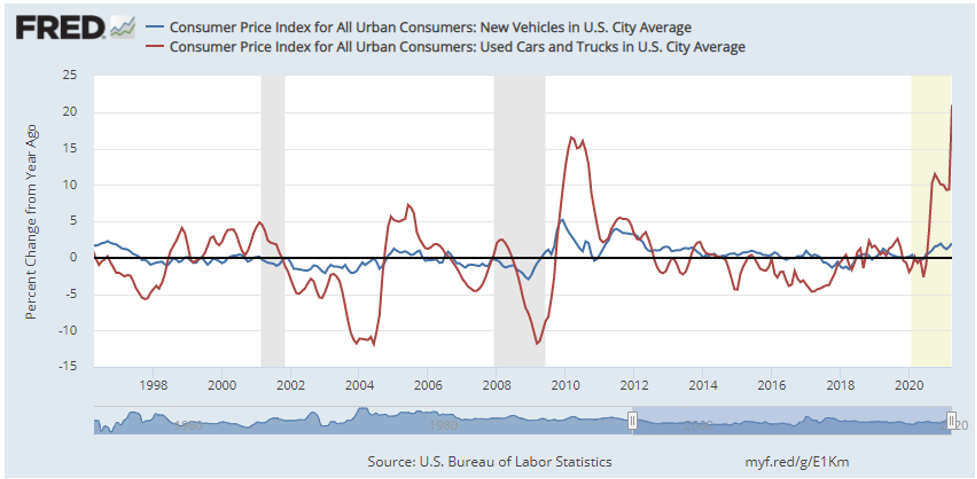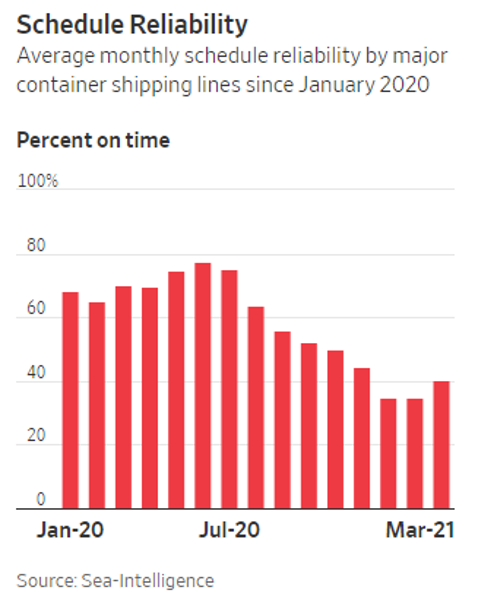This post may seem like it has a strange title, but just
wait for it.
For the past 10 or so years, my family has gone to Jackson
Hole, Wyoming for a summer trip. The first time we went, we fell in love with
the beauty of the Teton mountain range, the wildlife, and the incredible hikes
and scenery. There also happen to be a lot of great restaurants (e-mail me if
you need a recommendation) and you know how I love to eat. I'm really glad we
found this awesome vacation spot; I just wish I would have bought some real
estate there 10 years ago! But financial regrets are a story for another day.
This year, we were planning to fly out to Jackson Hole as we
normally do. I had the flights and hotel booked and everything seemed fine. Fine,
that is, until I played golf with my niece's husband who deals in the used car
market. He mentioned that all of the big rental car companies had been selling
off their inventory during the pandemic because no one was travelling and they were
getting crushed. He advised me to book my rental car as soon as possible because
now, as travel is picking up, most of the companies are short on vehicles. When
I went to the Hertz website, I found that they were totally sold out. Same
story with Budget. Avis did have one compact car available, but sadly the going
rate was $5,800 for the 10-day trip! That's unbelievable. I have also heard
tales of people going on vacation with car reservations in hand, only to hear
from the rental clerk upon landing, "Sorry we don't have any cars - come back
in a couple of days." What the heck?
Here's the rub: many U.S. citizens really enjoy going to Europe for a special summer vacation or getaway.
That isn't really in the cards
this year for many people because of the uncertainty surrounding the pandemic
status there. No one wants to get stuck in an airport hotel somewhere in Europe
because a local shutdown pops up. So, plan b for many of these folks is to travel
within the United States. This demand is pushing hotel rates, airplane tickets,
rental cars (if you can get them!) higher. Nonetheless, it seems that right
now, people are willing to bite the bullet and pay up because they didn't get
to go on a vacation last year. Price inelasticity. Plus, lots of people got
"free" money from the U.S. government recently, so why not?
I have also talked with people who enjoy shopping for cars;
yes, there are actually people who enjoy going to car lots to browse prices and
features. What they tell me is that there is a massive shortage in available
vehicles. Lots that normally have 2,000 vehicles waiting to be sold now have
around 200. If your heart is set on a particular color combination (or even a
particular model), good luck! I have often used graphs from the St. Louis Fed
in my posts. Until now, I did not know that they actually have an index that
tracks the prices of used cars. Here is what they see from the national
perspective:

So, used car prices are up over 20% in just one year, supply
of new cars is very stressed …are your inflation warning bells going off yet?
They should be.
Now, let's talk about shipping.
There are problems. According to Shiplilly, which tracks
global shipping:
"The global crisis that was accelerated by COVID-19 is
haunting us in 2021. The unusually late-year surge in imports during 2020 has
continued this year. The trans-Pacific eastbound space is now sold out
because of this. The impact of the Chinese New Year when factories
shutdown has also created an additional backlog."

The Wall Street Journal also did an excellent piece on the issues of this interruption of the supply chain entitled "Shipments Delayed: Ocean Carrier Shipping Times Surge in Supply-Chain Crunch". Here is a link to the full article. Heads up, you have to be a subscriber to read the full article. To me, the most important tidbit of information is captured in this graphic:
The shipping situation affects
everything. Manufacturers need supplies from overseas. If they are massively
delayed and it costs more to ship, someone has to pay. It will either be the
companies or the consumer. The companies may hold the line for a while, but
eventually the cost will have to be passed on to the end user. Cars will cost
more. Appliances will cost more. Anything with a computer chip will cost more.
I think you get the picture. Constrained supply in shipping leads not
only to inflation in shipping, but also in anything that depends upon it.
The supply chain issue is hard to
understand, and there are definitely implications that none of us probably
fully understand right now. Most of you will remember that there was a run-on
toilet paper in March 2020. That eventually worked itself out, but it
definitely caused people to act in peculiar ways. The issues I discussed above
will also eventually work themselves out, but it may take a while.
In the meantime, I am going to be driving
to Wyoming this summer, even if gas prices are much higher. My own price
inelasticity.
An important question for investors is what will this do to the prices of bonds?
As I posted a few days back, in "The Barbarians are at the Gate," higher prices and delays are coming, at least for the short-term. An important question for investors is what will this do to the prices of bonds? Historically, when inflation goes up, bond prices go down. The "rational expectations theory" of interest rates says lenders will require more interest, especially in longer maturities, to preserve their purchasing power. Will we defy history this time? Hard to say…there are a lot of very odd dynamics going on at the Fed and fiscal levels. Printing money as fast as possible, massive deficits, incredible budget proposals, and possible tapering of the asset purchases by the Fed. Hang on tight, because I think we might be in for a bumpy ride.
Final, final thought: I came across an
amazing recipe for white chicken enchiladas. Super easy and super tasty. Let me
know if you'd like me to send it to you.
Be sure to fill out the form below to subscribe to my weekly blog.


